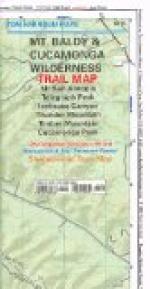Cyrus Garst rose suddenly. He kicked the camp-fire to make a blaze, then looked the woodsman fair in the eyes.
“I know, Herb,” he said; “the spirit of mercy will conquer.”
“Glad you think so!” answered Herb. “But I ain’t so sure. Sho! boys, I’ve kept you up till near midnight with my yarns. We must go to roost quick, or you’ll never be fit to light out for Katahdin to-morrow.”
CHAPTER XVIII.
TO LONELIER WILDS.
Before daybreak next morning Herb Heal was astir. Apparently even a short night’s sleep had driven from him all disturbing memories. He whistled and hummed softly, like the strong, hopeful fellow he was, controlling his notes so that they should not awaken his companions, while he hauled out and overlooked the canvas for a tent, to see if it was sound. Next he surveyed the camp-stores, and put up a supply of flour, pork, and coffee in a canvas bag, enough for four persons to subsist upon with economy during an excursion of six or seven days. For he knew that his employers would follow his suggestion, and be eager to start for the woods near Katahdin soon after they got their eyes open.
He had been doing his work with a candle held in his brown fingers; but as dawn-light began to enter the cabin, he quenched its dingy, yellow flicker, opened the camp-door, and surveyed the morning sky.
“It’ll be a good day to start out, I guess,” he muttered. “Let’s see, what time is it?”
The stars had not yet paled, and Herb forthwith fell to studying them; for they were his jewelled time-piece, by which he could tell the hour so long as they shone. Watch he had none.
While he gazed aloft at the glinting specks, he unconsciously began to croon, in a powerful bass voice, with deep gutturals, some words which certainly weren’t woodsman’s English.
“N’loan pes-saus, mok glint
ont-aven,
Glint ont-aven, nosh morgan.”
“What on earth is that outlandish thing you’re singing, Herb?” roared Neal Farrar from the bunk, awakened by the sounds. “Give us that stave again—do!”
The guide started. He had scarcely been aware of what he was humming, and his laugh was a trifle disconcerted.
“So you’re waking up, are ye?” he said. “Tain’t time to be stirring yet; I ought to be kicked for making such a row.”
“But what’s that you were singing?” reiterated Neal. “The words weren’t English, and they had a fine sort of roll.”
“They’re Injun,” was the answer. “I guess ’twas all the talking I done last night that brung ’em into my head. I picked ’em up from that fellow I was telling you about. He’d start crooning ’em whenever he looked at the stars to find out the hour.”
“Are they about the stars?”
“I guess so. A city man, who had studied the redskins’ language a lot, told me they meant:—
’We are the stars which sing,
We sing with our light.’"[1]




